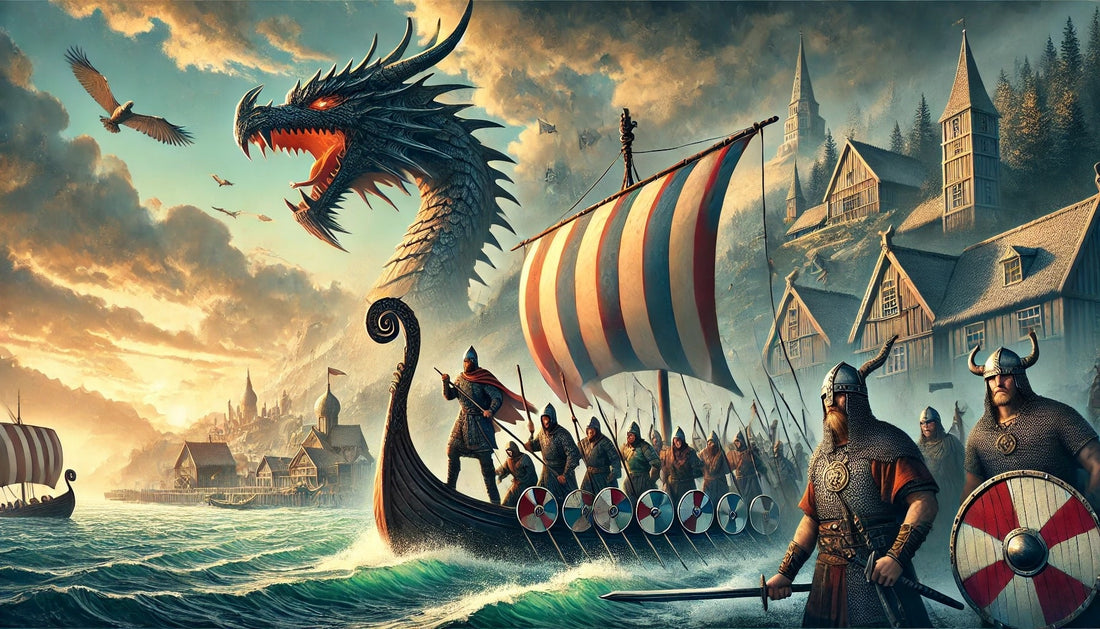
The Viking Age: Unveiling the Raiders, Explorers, and Settlers of Scandinavia
Share
The Viking Age: A Journey Through History
Introduction
The Viking Age, spanning roughly from 800 to 1050 CE, was a period marked by the extensive raids, trade, and exploration conducted by Norsemen from Scandinavia. This era saw Vikings reach as far as North America, leaving a lasting impact on the regions they touched. While popularly depicted as fierce warriors, the Vikings were also traders, explorers, and settlers who contributed significantly to the cultural landscape of Europe and beyond.

Origins and Motivations
The initial raids of the Viking Age began with the infamous attack on the Lindisfarne monastery in 793 CE, which set the tone for the next three centuries. The motivations behind these expeditions were varied, including the search for wealth, overpopulation in Scandinavian homelands, and the desire for adventure and new settlements. Additionally, internal conflicts and political unification efforts, particularly in Norway, pushed many chieftains and warriors to seek fortunes abroad.

Explorations and Settlements
The Vikings were exceptional navigators and shipbuilders, enabling them to explore vast territories. They established settlements in the British Isles, Iceland, Greenland, and even briefly in North America at a site known as Vinland. Their explorations were not limited to the west; they also ventured into Eastern Europe, founding important trade routes and interacting with the Byzantine Empire and the Islamic world.
In Britain, the Vikings established the Danelaw, a region under their control, and founded cities like Dublin in Ireland. Their presence in France led to the creation of Normandy, named after the Norsemen who settled there.

Cultural Impact
Despite their reputation as brutal raiders, the Vikings contributed significantly to the cultural and economic development of the regions they settled. They were skilled craftsmen, traders, and farmers. The Viking influence is evident in the linguistic and cultural imprints they left behind, particularly in place names and local customs.
Their conversion to Christianity over time also had a profound impact, as it facilitated their integration into the European feudal system and helped end the Viking Age as a distinct historical period.
Conclusion
The Viking Age was a transformative period in European history, characterised by the remarkable adaptability and resilience of the Norsemen. From their initial raids to their extensive explorations and settlements, the Vikings left an indelible mark on the world. Understanding the complexity of their society and their contributions beyond warfare provides a more nuanced view of these iconic figures of history.
